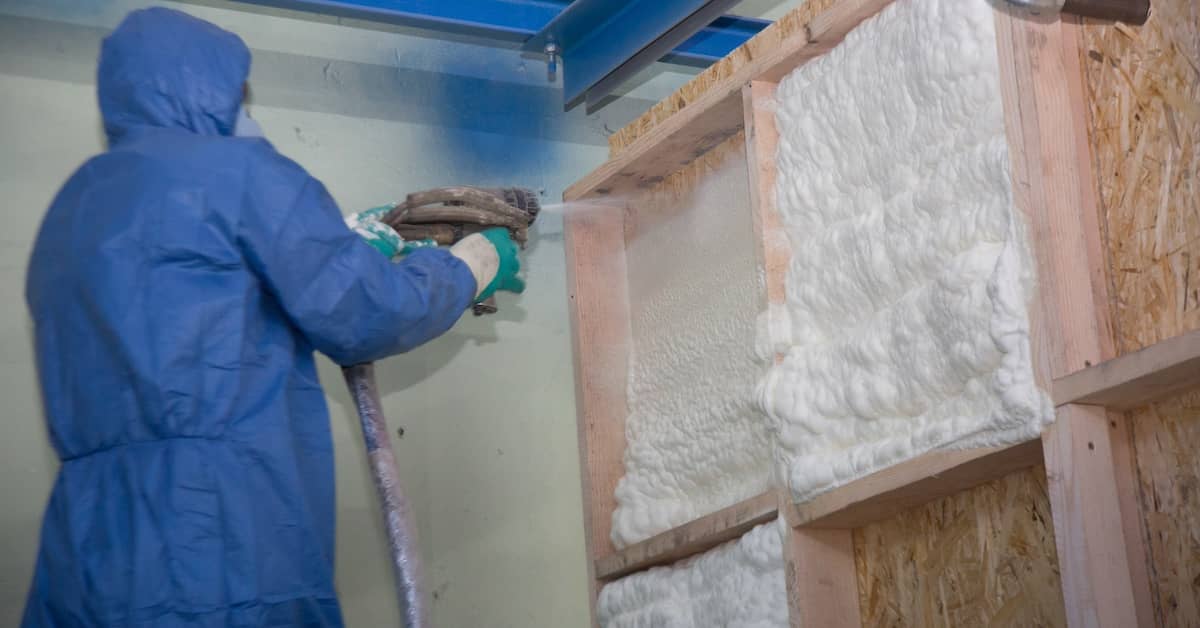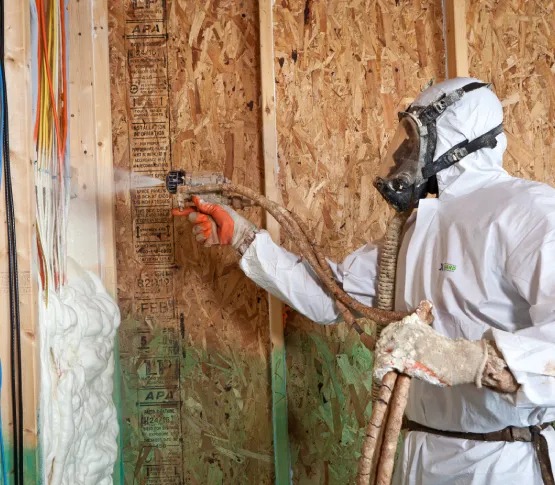Home insulation plays a crucial role in maintaining energy efficiency, comfort, and durability. Among the available insulation options, spray foam insulation has become a preferred choice for homeowners due to its superior performance. For residents of Denver County, CO, investing in residential spray foam insulation services ensures better energy conservation, improved indoor air quality, and long-term structural integrity. This guide explores the benefits, types, and considerations of spray foam insulation while addressing common queries.
Why Choose Spray Foam Insulation in Denver County, CO?
Energy Efficiency and Cost Savings
Spray foam insulation offers an exceptional air-sealing capability, reducing heat transfer and keeping conditioned air indoors. Homeowners in Denver County, CO experience lower energy bills due to reduced heating and cooling needs. Unlike traditional insulation materials, spray foam provides a higher R-value per inch, making it more effective in extreme temperatures.
Moisture and Mold Prevention
Denver County experiences varying humidity levels, making moisture control essential. Closed-cell spray foam insulation acts as a moisture barrier, preventing water infiltration and reducing the risk of mold growth. This added protection helps maintain the integrity of walls, ceilings, and crawl spaces.
Enhanced Indoor Air Quality
Spray foam insulation minimizes air leaks, preventing the entry of allergens, dust, and pollutants. This is particularly beneficial for families dealing with respiratory issues or allergies. Unlike fiberglass insulation, spray foam does not deteriorate over time, ensuring long-lasting air quality improvements.
Structural Strength and Longevity
Closed-cell spray foam enhances the strength of walls and roofs by adhering tightly to surfaces. This added rigidity makes structures more resistant to external forces, such as high winds and temperature fluctuations, common in Denver County, CO.
Types of Spray Foam Insulation
Open-Cell vs. Closed-Cell Spray Foam
Feature
Open-Cell Spray Foam
Closed-Cell Spray Foam
Density
Low
High
Moisture Resistance
Moderate
Excellent
R-Value per Inch
~3.5
~6-7
Soundproofing
High
Moderate
Cost
Lower
Higher
Both types have their advantages, but closed-cell spray foam is ideal for areas requiring maximum insulation, moisture resistance, and structural reinforcement.
Key Areas for Spray Foam Insulation Application
Attics and Roofs
Spray foam insulation effectively seals attic spaces, preventing heat loss and reducing strain on HVAC systems.
Walls and Basements
Proper insulation of interior and exterior walls enhances thermal performance and comfort. Basements benefit from spray foam by keeping moisture out and preventing mold formation.
Crawl Spaces
Insulating crawl spaces with spray foam helps control indoor humidity, eliminating drafts and cold floors during winter.

Factors to Consider Before Installation
Climate Considerations
Denver County, CO, experiences both hot summers and cold winters, making insulation a key factor in year-round comfort.
Professional vs. DIY Installation
While DIY spray foam kits are available, professional installation ensures precision, safety, and effectiveness. Trained experts use specialized equipment to achieve seamless coverage and compliance with local building codes.
Cost and Return on Investment (ROI)
Though initial costs are higher, spray foam insulation delivers long-term savings through reduced energy bills and minimal maintenance. Homeowners typically recoup their investment within a few years.
FAQs About Residential Spray Foam Insulation
1. How long does spray foam insulation last?
Spray foam insulation can last over 30 years, making it a durable and cost-effective solution for home insulation.
2. Is spray foam safe for my family and pets?
Once cured, spray foam insulation is non-toxic and safe. Professional installers use proper ventilation techniques to ensure safety during application.
3. Can spray foam insulation reduce noise?
Yes, open-cell spray foam is particularly effective in reducing airborne noise, making homes quieter and more comfortable.
4. Will spray foam insulation increase my home's value?
Yes, energy-efficient upgrades like spray foam insulation enhance home resale value and attract eco-conscious buyers.
5. How much does spray foam insulation cost?
Costs vary depending on home size, insulation type, and application areas. On average, homeowners pay between $1.50 to $5 per square foot.
6. Does spray foam insulation work for older homes?
Yes, spray foam is adaptable and can be installed in existing homes to improve insulation without major renovations.
7. Is spray foam environmentally friendly?
Spray foam reduces energy consumption and carbon footprint. Many modern formulations are designed to be eco-friendly with low VOC emissions.
8. Can spray foam be installed over existing insulation?
In some cases, existing insulation may need removal before applying spray foam for optimal results. Professional assessment is recommended.

Conclusion
Investing in residential spray foam insulation services in Denver County, CO enhances energy efficiency, comfort, and home durability. With benefits like superior thermal resistance, moisture control, and soundproofing, spray foam is a top-tier insulation solution for homeowners.
Get in Touch Today!
For expert spray foam insulation services, contact RIB Spray Foam at (970) 645-8077. Servicing Denver County, CO, and surrounding areas including Northern Colorado, Eastern Colorado, Weldona Colorado, Fort Morgan, Greeley, Loveland, East Colorado, Southeast Wyoming, and Northeast Denver.





Comments